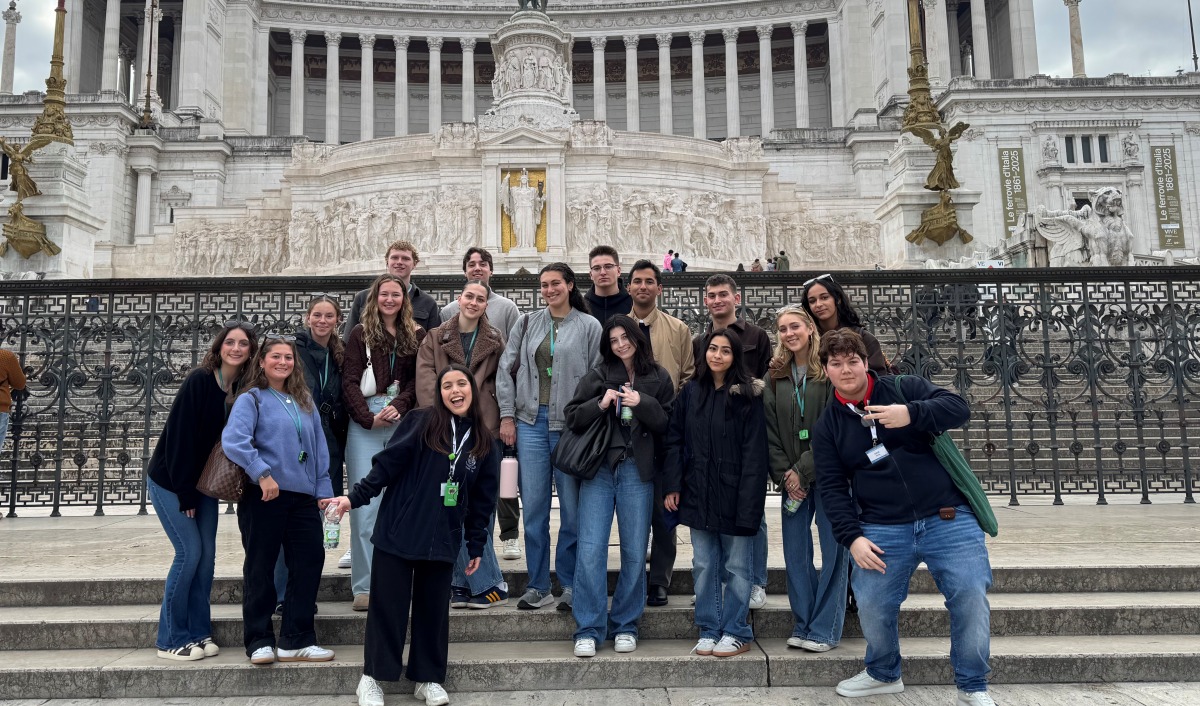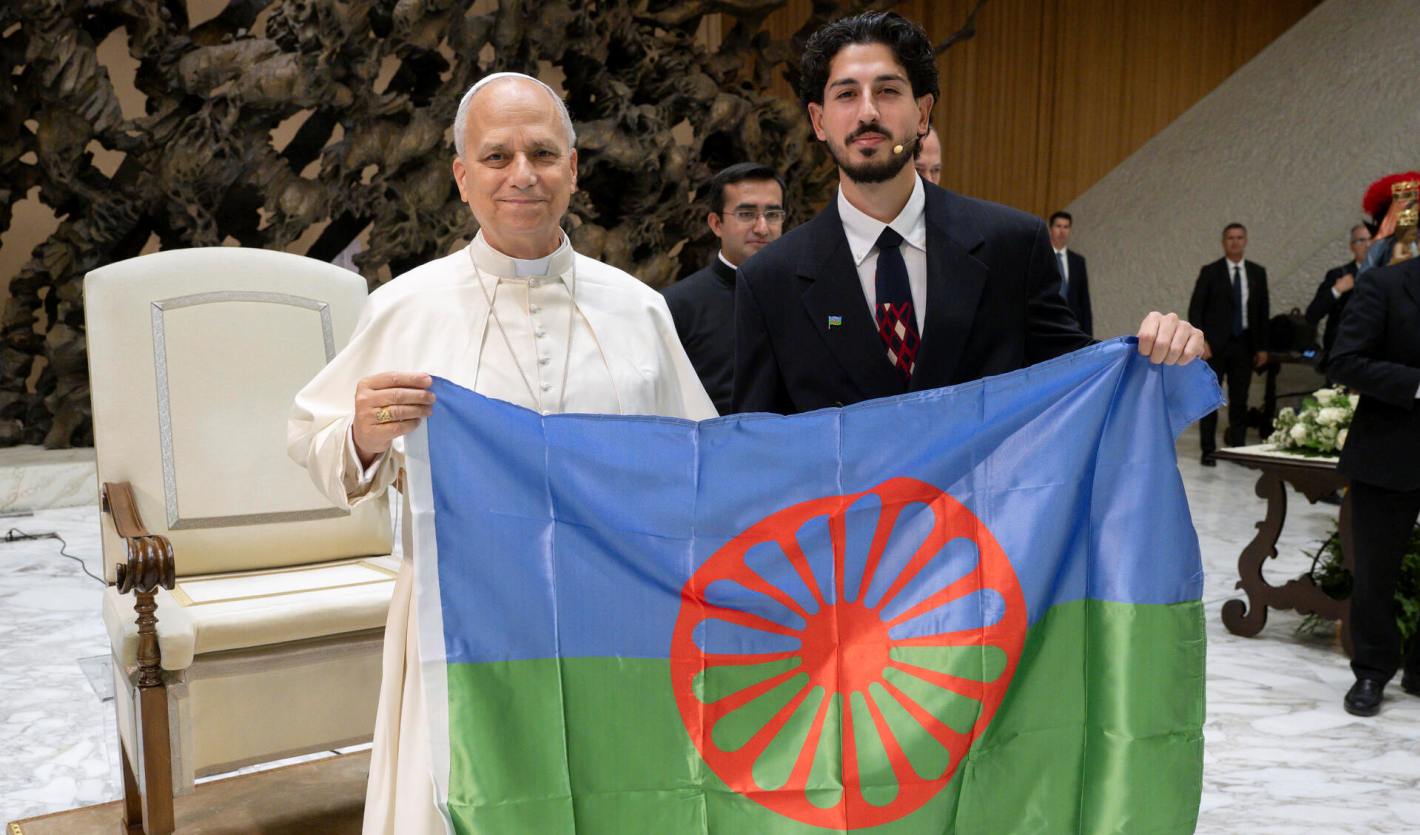Victoria Brizzi graduated from JCU with a BA in International Affairs and a minor in Legal Studies. Her academic dedication and experience have positioned her for a promising career in international organizations. From her internship at the U.S. State Department to her current role at the Food and Agriculture Organization (FAO) of the United Nations, her journey is a great example of how passion, persistence, and a strong academic foundation can lead to global impact.
Can you tell us about your career goals and how your experiences have shaped them?
My long-term goal has always been to work in human rights and international law, ideally within the UN system. Growing up between the U.S. and Rome, my various Model UN experiences in high school drew me to the international sphere and multicultural dialogue. My passion deepened during my time at JCU, where I began connecting academic theory with real-world issues.
I was about to start my master’s degree when I received an internship offer from the U.S. State Department in Washington, D.C., to work in the Bureau of International Organizations. That experience gave me invaluable insights into how the UN operates from a diplomatic perspective. I learned everything from drafting resolutions to participating in high-level discussions on human rights.
What are you currently working on at FAO?
I work in the Office of Youth and Women, which supports the Global Youth Action Initiative of the World Food Forum. That includes supporting the campaigns which are about youth engagement and leadership in the agrifood systems sector. It’s a dynamic role that blends advocacy with strategy. I can contribute to projects that raise awareness about global issues, like climate change and food security, while also engaging the/with younger generations. I recently worked on the World Food Forum Flagship Event’s organization, and it was such an inspiring week!
How did your time at John Cabot University prepare you for this kind of work?
JCU played a crucial role in preparing me for every opportunity I had. The academic environment was rigorous, but what really stood out were the skills I developed: clear writing, critical thinking, public speaking, and policy analysis. These skills are essential in international organizations; how you present your ideas can be just as important as the ideas themselves.
Beyond the classroom, JCU provided access to research assistantships, Model UN programs, and internships that enriched my resume and allowed me to apply what I was learning in real-world contexts.
Were there any professors or classes that had a particularly strong impact on you?
What really stood out at JCU was how accessible and invested the professors were. Their mentorship didn’t stop at the classroom door. They helped me with everything from networking to graduate applications.
Professor Lyal Sunga was the first who introduced me to human rights law, and that class completely changed my perspective. His experience with the UN brought incredible depth to every lecture. He later became my thesis advisor and remains a mentor to this day.
Professor Michael Driessen was one of the most inspiring lecturers and professors. He widened my interest in international conflict resolution and the role of religion in politics. He also helped me sharpen my research and analytical skills, and supported me during my thesis and in preparing my graduate school applications.
Professor Nicholas Startin was always available for any doubts on my career and academic path, and he also brought me closer to the field of European politics.
You have been involved in youth engagement through the World Forum as well. How did that come about?
I got involved with the national chapter of the World Food Forum last year, which was co-founded by other JCU alumni. I was inspired by how the organization engaged young people in policy conversations, especially around climate action.
Through that network, I volunteered at Venice Climate Week, which gave me valuable exposure to the intersection of climate issues and international governance. That experience aligned perfectly with the work I am doing now at FAO.
What challenges have you faced in breaking into international organizations?
One of the biggest challenges is competition. Positions at international organizations are incredibly competitive, and even securing an internship often requires multiple applications. I have also faced rejection in my path, but that is where persistence becomes key. It is rarely a straight path, but every step matters.
What advice would you give to current JCU students who dream of working in international organizations?
First, don’t limit yourself to the UN. There are many ways to build an international career. NGOs, embassies, research institutions, and local partnerships – be open to all of them.
Second, make the most of your time at JCU. Go beyond the classroom: volunteer, do research, attend events, and get involved with clubs. Those experiences often make your CV stand out.
Third, build strong relationships with your professors. They are not just academic mentors; they can become long-term advisors, references for grad school or jobs, and guides to help you navigate your career.
And finally: be persistent. You won’t get everything on the first try. But if you keep learning, applying, and showing up, the opportunities will come.












